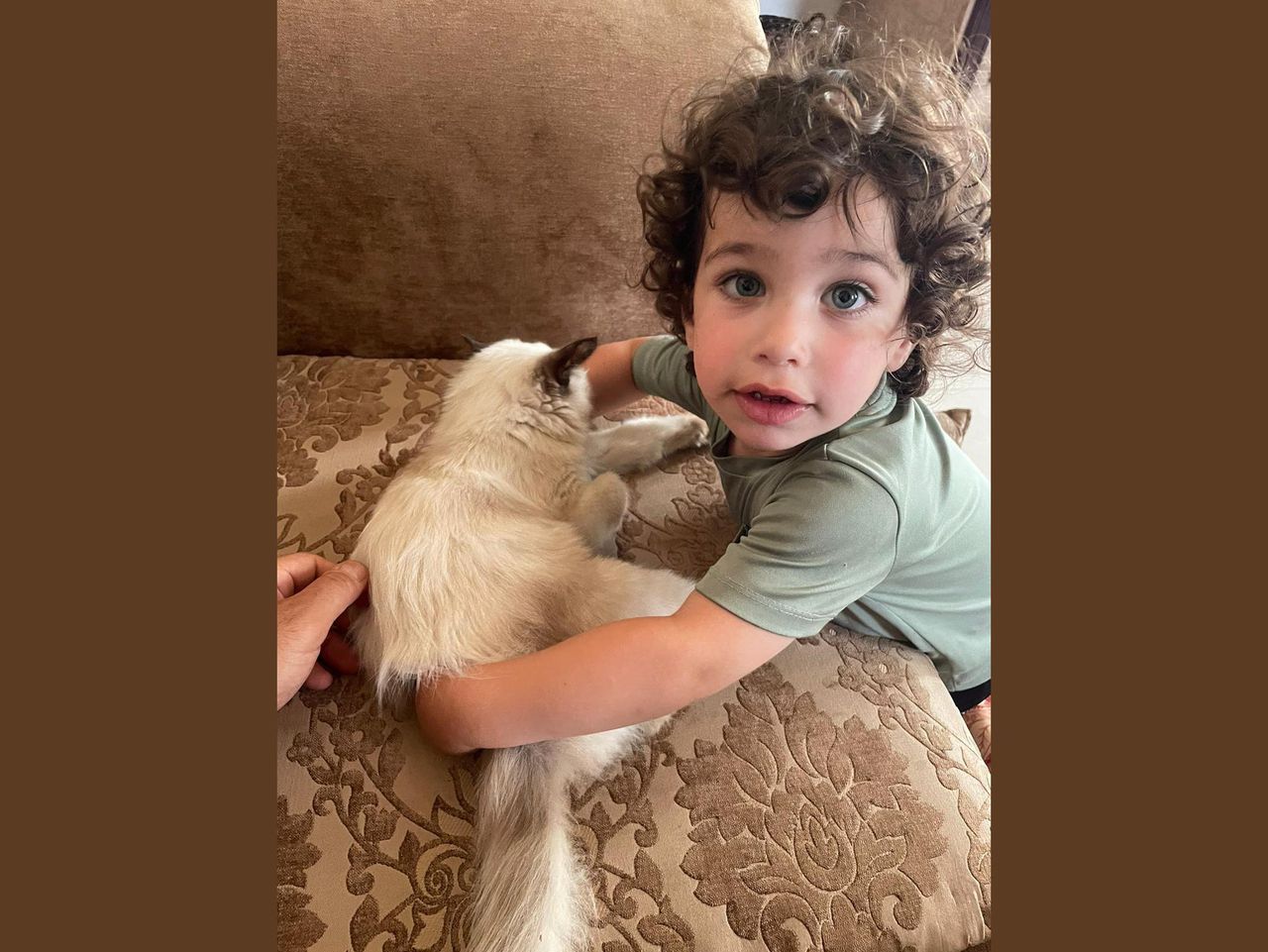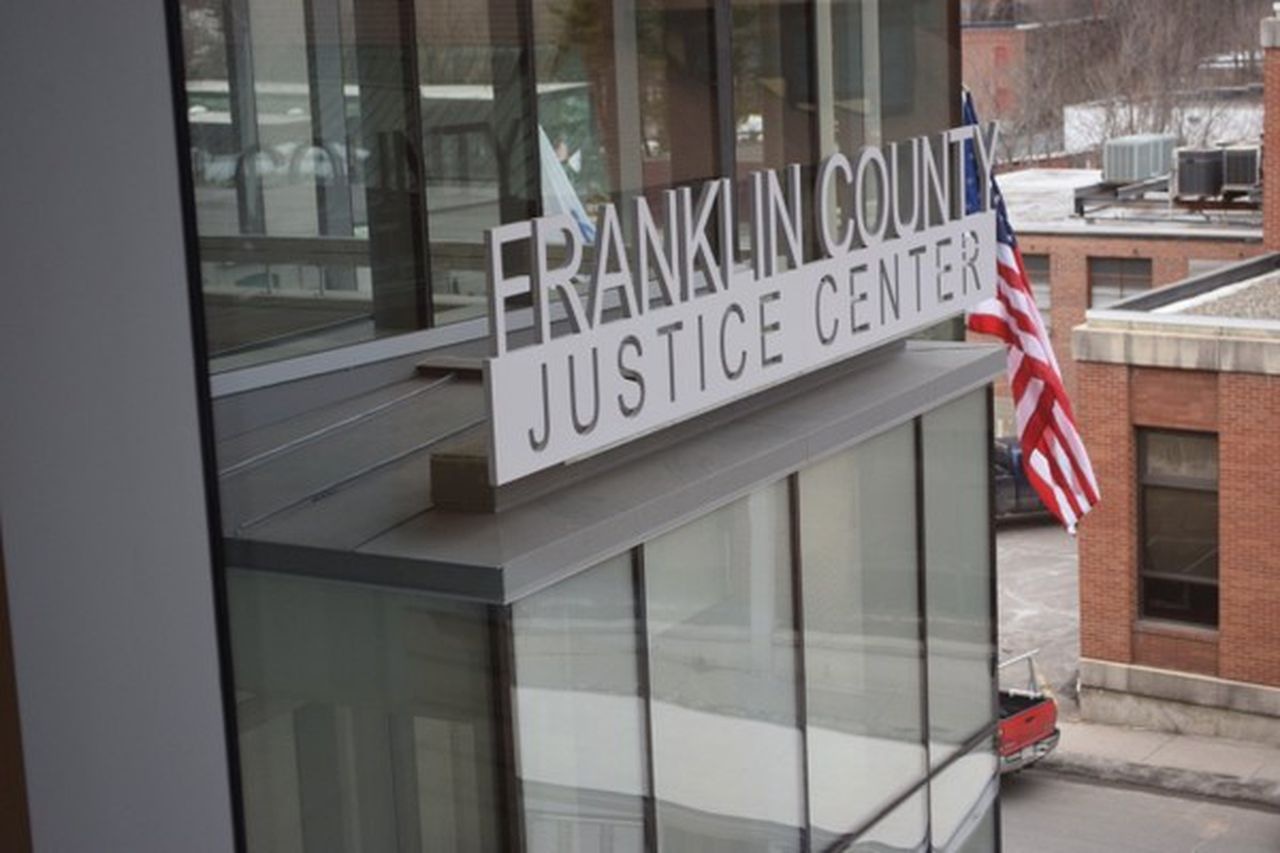A Medway family that has been trapped in Gaza since the beginning of the Israel-Hamas war still remains in the territory despite some being let out.
Reached Wednesday by text, Abood Okal said he and his wife Wafaa Abuzayda and 1-year-old son Yousef Okal will not be among those to leave Gaza that day.
“It’s the wounded and then some foreign nationals that are supposed to leave today,” Okal wrote. “Americans are not part of the group/list of names published to be able to cross today.”
Okal and his family have been in contact with the U.S. State Department since the start of the war on Oct. 7, when Hamas attacked Israel and killed hundreds of civilians. The borders around Gaza have been closed since then and continued fighting has led to thousands of deaths of both Israelis and Palestinians, many of whom are civilians.
Hundreds of American citizens remain trapped in Gaza.
The State Department told Okal to keep an eye out for further instructions on the day and timing of his family’s departure from Gaza.
“It should be soon,” Okal wrote.
The State Department did not immediately respond to a request for comment.
Okal shared the State Department message he received:
“The U.S. Government has reliable information that limited departures from Gaza may begin this week. U.S. citizens and family members will be assigned specific departure dates to ensure an orderly crossing. Please continue to monitor your email regularly over the next 24 to 72 hours for specific instructions for you and your family. Please gather your travel documents and inform us now if you do not have a valid passport or travel document. We will continue to update you in coming days. For your safety, please await specific instructions before proceeding to the Rafah Crossing. Thank you, please stay safe.”
Meanwhile, supplies have been scarce as food, water and fuel have largely been cut off from the whole of Gaza, with the exception of a trickle of humanitarian aid through the Rafah crossing between Gaza and Egypt. Steady airstrikes and gunfire from a recent ground invasion present danger, as well.
Okal is staying in a house with 40 people, among them 10 direct relatives who are also American citizens. He, his wife and son share a blanket to sleep on the floor. Okal has had to stand on line for hours to get a single gallon of water to share among the 40 people for a single day, he said.
“Drinking water remains to be the biggest issue where we try to find it every day on a day-to-day basis — one gallon for the house,” Okal wrote.
The family has secured canned food and is pretty well stocked up in that area, though on one occasion Okal had to wait on line six hours for bread. One grocery item they haven’t been able to obtain is milk, meaning they were forced to wean Yousef off of milk during the conflict. When Okal tried to walk to a neighboring community in search of milk, he witnessed an explosion and had to return to Rafah empty-handed.
Milk had been one of the few things to soothe Yousef amid explosions from daily and nightly airstrikes, which wake him up and cause him to scream in the night, Okal said.
“We’ve been trying to soothe him as much as we can and keep him shielded from the wrath of the war,” he added.
One small bright spot for the family has been that a kitten visited them in their home, and Yousef — an animal lover — has taken to it.

As his family shelters in Rafah, a community in southern Gaza, 1-year-old Yousef Okal plays with a kitten who visited amid airstrikes. (Abood Okal photo)Abood Okal photo
They call the cat Milka.
Escalating airstrikes have been terrifying for the family, and they fear being hit despite sheltering in their home.
“Last night was rough with shelling and airstrikes all night in east Rafah and Khan Younis,” Okal wrote, adding that he is worried that something unexpected might close the border.
Okal has reason to be concerned. In the past he has received messages from the State Department that the border with Egypt in Rafah would be open, only to travel there with his family and have no one allowed to cross.
In the past, the State Department has said issues with Egypt, Israel and Hamas have blocked passage from Gaza into Egypt. U.S. Congressman Jim McGovern of Massachusetts, whose district includes Medway, has said he is concerned and frustrated with lack of progress from the State Department and has contacted them every day about getting citizens out of Gaza.
Another person who shares that frustration is Sammy Nabulsi of Boston, a friend of the family who has been advocating tirelessly on their behalf, contacting elected officials and the State Department, as well as media outlets, trying to get the family home.
While Nabulsi said Wednesday he is encouraged that some foreign nationals have been able to depart — people from Japan, Austria, Bulgaria, Indonesia, Jordan, Australia, the Czech Republic and Finland, he said — he expressed frustration that Americans were not among them.
“The State Department informed me that they have not yet secured departure for its citizens, including the Okal family,” Nabulsi said Wednesday. “My concern has and continues to be that at every turn the United States has prioritized foreign interests over the safety and security of American citizens. We are seeing that again, 25 days after the Okal family first became trapped.”
Nabulsi continued that he feared for the family’s safety.
“They are living on borrowed time, yet the United States has yet to demonstrate that they are prioritizing saving the lives of its own citizens,” he said.





